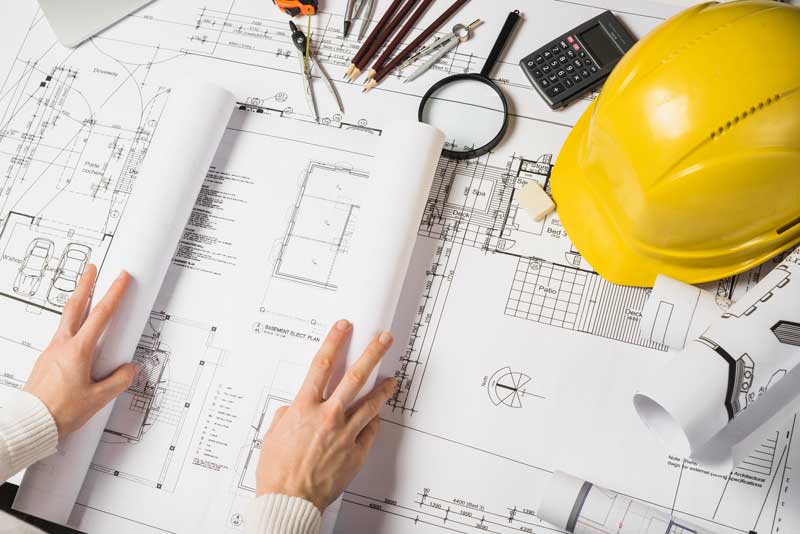Avocat expert VEFA
Maître Zakine, Docteur en Droit
Intervient partout en France (DOM TOM inclus)
Sommaire

Présentation de Me Zakine, avocat VEFA et CCMI
Avocat expert VEFA , Me Zakine, Docteur en Droit, Avocat vous accompagne dans toutes les démarches relatives au VEFA
bien, concernant sur un retard en Vente en l’état de futur achèvement (VEFA) , malfaçons, non-respect du cahier des cahiers de charge, abandon de chantier, actions en paiement, non-paiement des factures à la suite de prestations, absence de démarrage des travaux, retard dans le démarrage des travaux dans le cadre d’un contrat de construction de maison individuelle, non-conformité, action en référé dans le cadre de la garantie de parfait achèvement, action en vices cachés, assistance à la livraison d’un bien, assistance à la levée des réserves, mise en cause du promoteur en cas de retard ou de malfaçons, action en référé-expertise visant à faire désigner un expert judiciaire.
Maître Zakine intervient dans la France entière, soit directement soit par des postulations .
Accompagné par un avocat expert en VEFA, vous pourrez mieux gérer votre VEFA et les relations contractuelles qui y sont liées.
La maitrise des outils digitaux (Visio conférence – Google Meet – signature électronique – coffre fort électronique ) permet de travailler à distance, à votre rythme.
Se faire accompagner par un avocat expérimenté dans le VEFA est une chose importante.

Acquisition de VEFA, livraison en retard ou livraison avec malfaçon, Maître Zakine, Avocat, Docteur en Droit, Chargée de Cours à l’Université de Droit de Nice, peut vous aider. Elle est là pour vous fournier l’assistance d’un avocat qui connait parfaitement le VEFA.
Elle travaille sur toute la France et pratique quotidiennement ce droit rigoureux pour défendre au mieux vos intérêts.
3 raisons de solliciter l’accompagnement d’un avocat spécialisé dans la VEFA ou les CCMI
Sommaire
1. Analyse du projet d’un aspect légal le VEFA
Depuis la signature du contrat jusqu’à la livraison du bien immobilier et veille à conseiller les acquéreurs en cas de difficulté au cours de la livraison dans le cadre de votre achat immobilier. Que cela soit dans le cadre d’un achat immobilier classique ou plus exceptionnel. Être accompagné par un avocat est important.
L’analyse des documents contractuels et les conseils délivrés au client sur une acquisition d’un bien en VEFA ou la construction d’une maison évitent bien des situations dommageables au cours de la construction notamment en cas de retard de la livraison.
Pour ce qui de la vente en l’état de futur achèvement, il s’agira d’analyser les clauses du contrat de réservation incluant la date prévisionnelle de livraison et de comparer celle-ci à la date prévue à l’acte authentique de vente.
Il peut arriver que les dates diffèrent. Le jour de la vente, le Notaire indique que la livraison a été retardée mais le promoteur ne fournit, en générale, aucune explication à ce sujet.
Ce n’est que plus tard que le promoteur-constructeur s’explique sur les causes de retard de la livraison sans fournir de justificatifs sur les retards indiqués aux acquéreurs.
Il s’agira de vérifier les causes du retard et de les analyser.
Les motifs sont très souvent artificiels dans le seul but de s’exonérer de toute responsabilité.
L’analyse des documents contractuels et du permis de construire permet également de vérifier que le retard ne provient pas d’un problème lié au permis de construire.
Souvent, il arrive que le démarrage du chantier révèle des difficultés : effondrement d’une partie du terrain, obligation de confortement du sol ou défaut de raccordement au seul motif que les demandes auprès des concessionnaires n’ont pas été réalisées.
En effet, les promoteurs se retranchent derrière les clauses prévues à l’acte de vente.
Cependant, celles-ci peuvent être soit abusives dans leur rédaction soit être appliquées de manière abusive et de mauvaise foi surtout pour ce qui est de la clause prévoyant des majorations de délai de livraison en cas d’intempéries et de défaillance d’entreprise.
Le fait que l’acquéreur ait donné son consentement à l’acte de vente ne permet pas au constructeur de se retrancher derrière les termes du contrat.
Le promoteur doit exécuter le contrat en toute loyauté.
Comme tout contrat, un contrat de vente pour une vente en l’état de parfait achèvement ou pour un contrat de construction d’une maison individuelle doit être négocié et exécuté de bonne foi et de manière loyale.
Pour ce qui est du contrat de construction de maison individuelle, l’Avocat vérifiera que l’ensemble des mentions obligatoires sont bien précisées dans les documents contractuels étant entendu que celles-ci ainsi que les annexes diffèrent selon que le contrat est conclu avec ou sans fourniture de plan.
Il conviendra également de vérifier s’il s’agit d’un CCMI avec ou sans fourniture de plan car les obligations du constructeur sont différentes.
De plus, il conviendra de vérifier que même les travaux exclus, qui resteront à la charge du maitre de l »ouvrage, c’est-à-dire les clients, ont été chiffrés par le constructeur.
A l’instar de l’acte de vente VEFA, l’Avocat veillera à ce que des clauses illégales ne soient pas insérées dans un CCMI. Ces clauses sont les suivantes :• L’obligation de confier la recherche des crédits immobiliers nécessaires au financement du projet au constructeur en personne ;• L’interdiction de visiter le chantier avant la réception finale des travaux ;• La remise des clés uniquement lorsque l’intégralité du prix a été versé au constructeur, ce qui empêche le particulier d’émettre des réserves lors de la réception des travaux.
Faire appel à la Garantie de Parfait Etat d’achèvement n’est pas à oublier !
N’hésitez pas à faire appel à un avocat pour vous guider durant toute la construction de votre maison individuelle et vérifier que tous les documents exigés sont bien présents.
Il convient de savoir que celui qui décide de construire une maison dispose d’un délai de rétractation de dix jours.
S’agissant des CCMI, les documents que l’entrepreneur doit transmettre au maître d’ouvrage, il conviendra de veiller à ce que les entreprises intervenantes disposent d’une assurance pour couvrir leur responsabilité civile et apporter une garantie décennale.
Une garantie de livraison (permet l’achèvement des travaux en cas de défaillance du dit entrepreneur, c’est-à-dire lorsque l’ouvrage n’est pas livré dans le délai prévu au contrat ou lorsque le constructeur est placé en liquidation ou en redressement judiciaire. Le client peut alors se retourner vers le garant de la société et exiger de lui l’achèvement des travaux prévus) et ensuite d’une notice d’information (destiné à informer le maître d’ouvrage de l’ensemble de ses droits) dans les clauses du contrat et ses annexes devront être exigées.

L’Avocat vérifiera également si les modifications, les ajouts dans le cadre du chantier ont fait l’objet d’avenants clairs et détaillés.
Cependant, il ne faut pas s’en tenir à ces pénalités de retard.
D’autres préjudices peuvent être sollicités en justice par votre Avocat spécialisé en VEFA
Il s’agit du préjudice de jouissance, du préjudice moral, de la perte de chance de gains immobiliers, la perte de revenus locatifs, le remboursement d’intérêts intercalaires (frais bancaires spécifiques à la construction VEFA).
L’assurance de Dommages Ouvrage est obligatoire pour le particulier lorsqu’il se lance dans une opération de construction.

2. Surveiller son chantier et ses appels de fonds
Au cours du chantier, celui qui construit sa maison peut surveiller la construction de votre maison mais dans des conditions très encadrées.
n accès au chantier réglementé. Pendant la construction, c’est le constructeur qui a la « garde » du chantier » qui demeure sous sa responsabilité.
Des visites sont prévues avant chaque appel de fonds. Être accompagné par un avocat permet de vérifier que l’acte authentique de vente couvrre bi
Des réunions de chantier peuvent être organisées et programmées avec le constructeur.
Le contrat prévoit souvent un calendrier de visites de chantier qui s’ajoutent à celles prévues avant les appels de fonds.
Les appels de fonds sont adressés au fur et à mesure de la construction et il peut arriver qu’il n’y ait pas de cohérence entre les appels de fonds et l’avancement de la construction.
Dans ce cas, un courrier de mise en demeure doit être adressé au constructeur pour lui demander des explications.
3.Les documents susceptibles d’être demandés ou exigés après réception du chantier ?
Au cours du chantier, celui qui construit sa maison peut surveiller la construction de votre maison mais dans des conditions très encadrées.
Un accès au chantier réglementé. Pendant la construction, c’est le constructeur qui a la « garde » du chantier » qui demeure sous sa responsabilité.
De même, il existe des clauses légitimes de suspension et d’autres que le promoteur essaie de faire passer comme telles.
Des visites sont prévues avant chaque appel de fonds. Être accompagné par un avocat, c’est s’assurer que les appels de fonds soient corrects.
Des réunions de chantier peuvent être organisées et programmées avec le constructeur.
Des arrêts de chantier peuvent intervenir en cas de difficulté ce, jusqu’à que le point de blocage soit résolu. Le contrat prévoit souvent un calendrier de visites de chantier qui s’ajoutent à celles prévues avant les appels de fonds.
Il faut savoir que le constructeur peut se réserver le droit de mettre le chantier à l’arrêt dans le cas où les appels de fonds ne sont pas honorés par le Maître de l’ouvrage.
Une situation bloquante peut intervenir et que l’Avocat pourra débloquer par un dialogue engagé soit avec le constructeur soit avec le Conseil de ce dernier ce, dans le but de trouver un accord.
Il faut, même si cela est hors contexte, que la Garantie de parfait état achèvement ne peut jouer que sur des causes bien définies ! Il faudra faire attention à ce que le délai de Garantie de Parfait état ne soit pas frappé de forclusion (GPA).
4. Faire appel à un avocat VEFA pour vous conseiller
En tant qu’avocat expert en VEFA, Maître Zakine intervient en achat VEFA ou en retard de livraison d’un achat vefa. Elle intervient aussi en annulation de vente VEFA sur toute la France( Montpellier , Bordeaux, Nice , Agen). Un retard dans la date de livraison, un garde meuble pris, ce sont en effet des dommages et intérêts que vous devrez demander.
Maître Zakine intervient en achat VEFA ou en retard de livraison d’un achat vefa. Elle intervient aussi en annulation de vente VEFA sur toute la France( Montpellier , Bordeaux, Nice , Agen). Un retard dans la date de livraison, un garde meuble pris, ce sont en effet des dommages et intérêts que vous devrez demander.
Faire appel à un Avocat avant et pendant la construction permet d’éviter certaines difficultés.
L’Avocat pourra vérifier les documents contractuels et les avenants dans le cas où certains viendraient à être signés.
En étant accompagné par un avocat, il pourra également adresser des courriers au constructeur dès que des problèmes se poseront.
Les relations se cristallisent très rapidement entre le maître de l’ouvrage et le constructeur. La présence de l’Avocat en droit de la construction permettra de dépassionner le débat et de trouver des solutions avant que la situation ne devienne très difficile à dénouer.
L’Avocat en droit de la construction pourra porter assistant à ses clients au cours de la livraison et vérifier également que le constructeur leur laisse la possibilité de consigner la somme de 5%, si cela est possible.
Rappelons que la consignation est réalisée exclusivement auprès de la Caisse des dépôts et consignations et que le fait de bloquer la somme sur un compte ne vaut pas consignation.
Notons également que la déconsignation ne peut avoir lieu que sur décision de justice ou après accord des deux parties.
Attention à la consignation : le constructeur n’a pas le droit d’exiger le paiement de la somme de 5% restant et conditionner la livraison à ce règlement. Il s’agit d’un délit pénal.
Maître Zakine se tient à votre disposition. Vous pouvez déjà prendre rendez – vous avec elle en ligne pour une première consultation rapide. Cela peut se faire par visio (Google Meet, Téléphone).
Notre Cabinet d’avocat spécialisé VEFE se tient à votre disposition.



